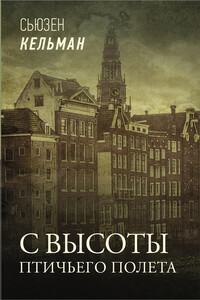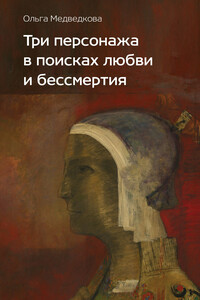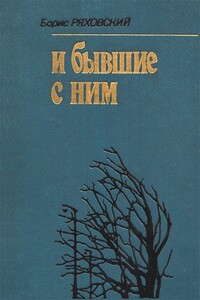36 Arguments for the Existence of God - [8]
II The Argument from Lucinda
from: [email protected]
date: Feb. 26 2008 5:37 a.m.
subject: possible argument #37
You awake?
from: [email protected]
date: Feb. 26 2008 5:38 a.m.
subject: re: possible argument #37
Awake.
from: [email protected]
date: Feb. 26 2008 5:39 AM
subject: re: re: possible argument #37
I think I may have come up with another argument. A really good one. Tell me I’m crazy but I think this one might be it. Tell me I’m crazy but I think this one is different.
from: [email protected]
date: Feb. 26 2008 5:40 a.m.
subject: re: re: re: possible argument #37
All right, you’re crazy.
from: [email protected]
date: Feb. 26 2008 6:00 a.m.
subject: re: re: re: re: possible argument #37
But I still want to hear it.
from: [email protected]
date: Feb. 26 2008 6:01 a.m.
subject: re: re: re: re: re: possible argument #37
It went away. I tried to formulate it and it completely went away. I think I miss Lucinda.
from: [email protected]
date: Feb. 26 2008 6:08 a.m.
subject: the argument from Lucinda
Of course you do. But that’s no reason to believe in God.
from: [email protected]
date: Feb. 26 2008 6:10 a.m.
subject: re: the argument from Lucinda
:-) Good night.
from: [email protected]
date: Feb. 26 2008 6:13 a.m.
subject: re: re: the argument from Lucinda
Good morning.
III The Argument from Dappled Things
When Lucinda Mandelbaum entered the crowded auditorium of the Katzenbaum Brain and Cognitive Sciences Center at Frankfurter University for the inaugural Friday-afternoon Psychology Outside Speaker lecture of the new semester and rejected an aisle seat, instead clambering lithely over the legs, laps, and laptops of the assorted faculty members and graduate students, all of whom had been impatiently awaiting her maiden entrance, even though it was not she but, rather, Harold Lipkin of Rutgers University who was the invited speaker; and when she then slipped into the empty seat next to Cass Seltzer, bestowing on him a sweet little shrug of coy chagrin at coming in late and making a bit of a commotion in getting to him; and when she then proceeded, all through Lipkin’s lecture, entitled “The Myth of Moral Reason,” to address her running commentary on Lipkin’s efforts exclusively to Cass, so that Cass, who had in fact been looking forward to Lipkin’s lecture, seeing how the psychology of morality dovetailed with his own research on the psychology of religion, ended up missing a good part of it, instead chuckling appreciatively at Lucinda’s zingers and even managing to launch one himself that had made Lucinda snigger so enthusiastically that his good friend and colleague Mona Ganz, sitting several rows in front of them, her well-groomed girth just able to settle itself into the seat she always claimed for herself, front and center, swiveled her head around and then, determining the identity of the sniggerer, reversed the motion just as sharply-“like that kid in The Exorcist,” Lucinda observed, making Cass give vent to a chortle so disloyal that it certainly ought to have been swiftly followed by a stab of guilt, considering Mona’s devoted mindfulness toward him, especially during the ravaged weeks and months that had followed the post-aphasic Pascale’s first words to him from her hospital bed, which, in their percussive rhythm and impeccable precision, “I must of necessity break your heart,” were as reflective of the poet that Pascale was (La Sauvagerie et la certitude, Prix Femina, 1987) as they were effective in dampening the desire of her husband to live out any and all possible forms of his future-it had been entirely by mistake.
Lucinda had thought that Cass Seltzer was someone else entirely. To be precise, she had thought that Cass Seltzer was their mutual colleague Sebastian Held, to whom she had been introduced last week at the welcome party that she thought the university had thrown for her. (Actually, she had been wrong. The party had been in honor of all the newly arrived faculty.)
Lipkin, a small man with a booming, pedantic, overenunciating style, was an excitable lecturer, who rose onto his well-shod tiny tiptoes as he hammered home his points. He was already launched at full steam in his oratorical trajectory, irrigating the first row with his spittle, speed-clicking his way through the PowerPoint presentation that swerved abruptly from brain scans of sophomores, neuroimaged in the throes of moral deliberation over whether they should, in theory, toss a hapless fat man onto the tracks in order to use his bulk to save five other men from an oncoming trolley, to sweeping conclusions that claimed to deliver final justice to John Rawls, not to speak of categorically laying to rest the imperative-rattling ghost of Immanuel Kant.

1941 год. Амстердам оккупирован нацистами. Профессор Йозеф Хельд понимает, что теперь его родной город во власти разрушительной, уничтожающей все на своем пути силы, которая не знает ни жалости, ни сострадания. И, казалось бы, Хельду ничего не остается, кроме как покорится новому режиму, переступив через себя. Сделать так, как поступает большинство, – молчаливо смириться со своей участью. Но столкнувшись с нацистским произволом, Хельд больше не может закрывать глаза. Один из его студентов, Майкл Блюм, вызвал интерес гестапо.

Что между ними общего? На первый взгляд ничего. Средневековую принцессу куда-то зачем-то везут, она оказывается в совсем ином мире, в Италии эпохи Возрождения и там встречается с… В середине XVIII века умница-вдова умело и со вкусом ведет дела издательского дома во французском провинциальном городке. Все у нее идет по хорошо продуманному плану и вдруг… Поляк-филолог, родившийся в Лондоне в конце XIX века, смотрит из окон своей римской квартиры на Авентинский холм и о чем-то мечтает. Потом с риском для жизни спускается с лестницы, выходит на улицу и тут… Три персонажа, три истории, три эпохи, разные страны; три стиля жизни, мыслей, чувств; три модуса повествования, свойственные этим странам и тем временам.

Герои романа выросли в провинции. Сегодня они — москвичи, утвердившиеся в многослойной жизни столицы. Дружбу их питает не только память о речке детства, об аллеях старинного городского сада в те времена, когда носили они брюки-клеш и парусиновые туфли обновляли зубной пастой, когда нервно готовились к конкурсам в московские вузы. Те конкурсы давно позади, сейчас друзья проходят изо дня в день гораздо более трудный конкурс. Напряженная деловая жизнь Москвы с ее индустриальной организацией труда, с ее духовными ценностями постоянно испытывает профессиональную ответственность героев, их гражданственность, которая невозможна без развитой человечности.

«А все так и сложилось — как нарочно, будто подстроил кто. И жена Арсению досталась такая, что только держись. Что называется — черт подсунул. Арсений про Васену Власьевну так и говорил: нечистый сосватал. Другой бы давно сбежал куда глаза глядят, а Арсений ничего, вроде бы даже приладился как-то».

В этой книге собраны небольшие лирические рассказы. «Ещё в раннем детстве, в деревенском моём детстве, я поняла, что можно разговаривать с деревьями, перекликаться с птицами, говорить с облаками. В самые тяжёлые минуты жизни уходила я к ним, к тому неживому, что было для меня самым живым. И теперь, когда душа моя выжжена, только к небу, деревьям и цветам могу обращаться я на равных — они поймут». Книга издана при поддержке Министерства культуры РФ и Московского союза литераторов.

Жестокая и смешная сказка с множеством натуралистичных сцен насилия. Читается за 20-30 минут. Прекрасно подойдет для странного летнего вечера. «Жук, что ел жуков» – это макросъемка мира, что скрыт от нас в траве и листве. Здесь зарождаются и гибнут народы, кипят войны и революции, а один человеческий день составляет целую эпоху. Вместе с Жуком и Клещом вы отправитесь в опасное путешествие с не менее опасными последствиями.